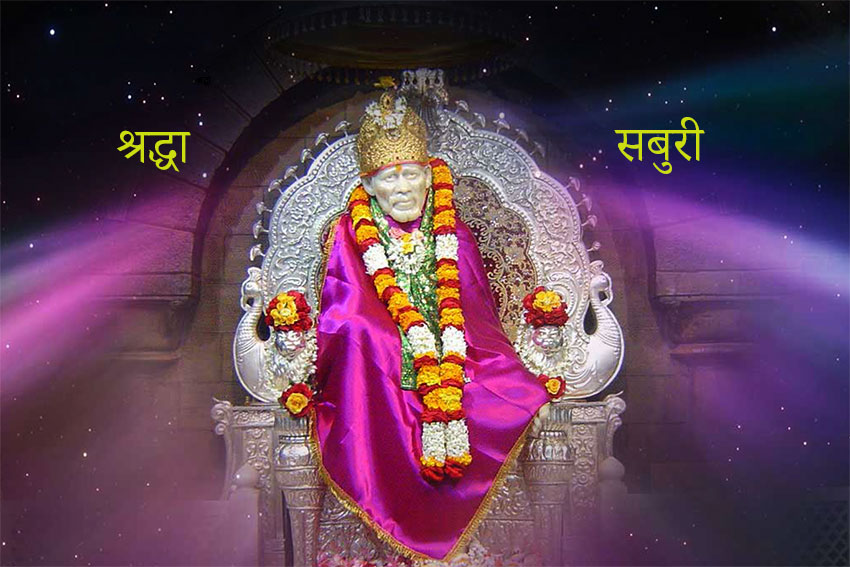Quote Of The Day
*Life is a song - sing it. Life is a game - play it.
Life is a challenge - meet it. Life is a dream - realize it.
Life is a sacrifice - offer it. Life is love - enjoy it.
-Sai Baba

Sai Baba was not only a saint but "God's incarnate" himself in the mind of the millions of devotees of different cast, religion and also creed. Sai Baba of Shirdi was also known as Shirdi Sai Baba.He was an Indian guru, yogi and fakir who is regarded by his Hindu and Muslim devotees as a saint. Some Hindu followers have recently claimed that he was an incarnation of Shiva or god Dattatreya, which has helped them to accommodate him in the traditional Hindu worship. Many devotees believe that he was a Sadguru. There are many stories and eyewitness accounts of the miracles he performed. He is a well-known figure in many parts of the world, but especially in India, where he is much revered.
The name 'Sai Baba' is a combination of Persian and Indian origin but the fact is that sai is name from Indian origin meaning "Sakshat Ishwar" given by the priest Mahalsapati during the evening when baba returned to shirdi after leaving shirdi earlier in his teenage days (reference to it could be found in Sai Charitra). Although the priest Mahalsapti confesses the fact that he also does not realise him giving the name of "Sai" to Baba. Baba (honorific) is a word meaning "father; grandfather; old man; sir" used in Indo-Aryanlanguages. The appellative thus refers to Sai Baba as being a "holy father" or "saintly father".[1]His parentage, birth details, and life before the age of sixteen are obscure, which has led to a variety of speculations and theories attempting to explain Sai Baba's origins. In his life and teachings he tried to reconcile Hinduism and Islam: Sai Baba lived in a mosque which he calledDwarakamayi, practiced Hindu and Muslim rituals, taught using words and figures that drew from both traditions and was buried in a Hindu temple in Shirdi. One of his well known epigrams says of God: Sabka Malik Ek ("One God governs all") which traces its root to the Bhagavad-Gitaand Islam in general, and Sufism, in particular. He always uttered "Allah Malik" ("God is Master"). He had no love for perishable things, and was always engrossed in self-realization, which was his sole concern.
Sai Baba used to give a lesson on moral code of love, forgiveness, helping others, charity, contentment, inner peace,and devotion to God and guru. Sai Baba remains a very popular saint and is worshipped by people around the world. Though the debate over his Hindu or Muslim origins continues to take place, his personal religious practices such as belief in the unity of God, reciting Al-Fatiha among other Quranic verses, liking Namaz as a way of prayer, and other individual preferences such as the attire of a Muslim saint with head covered, consumption of meat and abstinence from alcohol point more to him being a Muslim. There is still mosque in Shirdi where he regularly used to visit and live. According to Purdom, when Kulkarni Maharaj strongly requested Upasni Maharaj to pay a visit to Sai Baba, Upasni replied 'Why should I go to a Muslim?'[3] He is also revered by several notable Hindu and Sufi religious leaders. Some of his disciples received fame as spiritual figures and saints such as Upasni Maharaj, Meher Baba, Saint Bidkar Maharaj, Saint Gangagir, Saint Jankidas Maharaj and Sati Godavari Mataji.